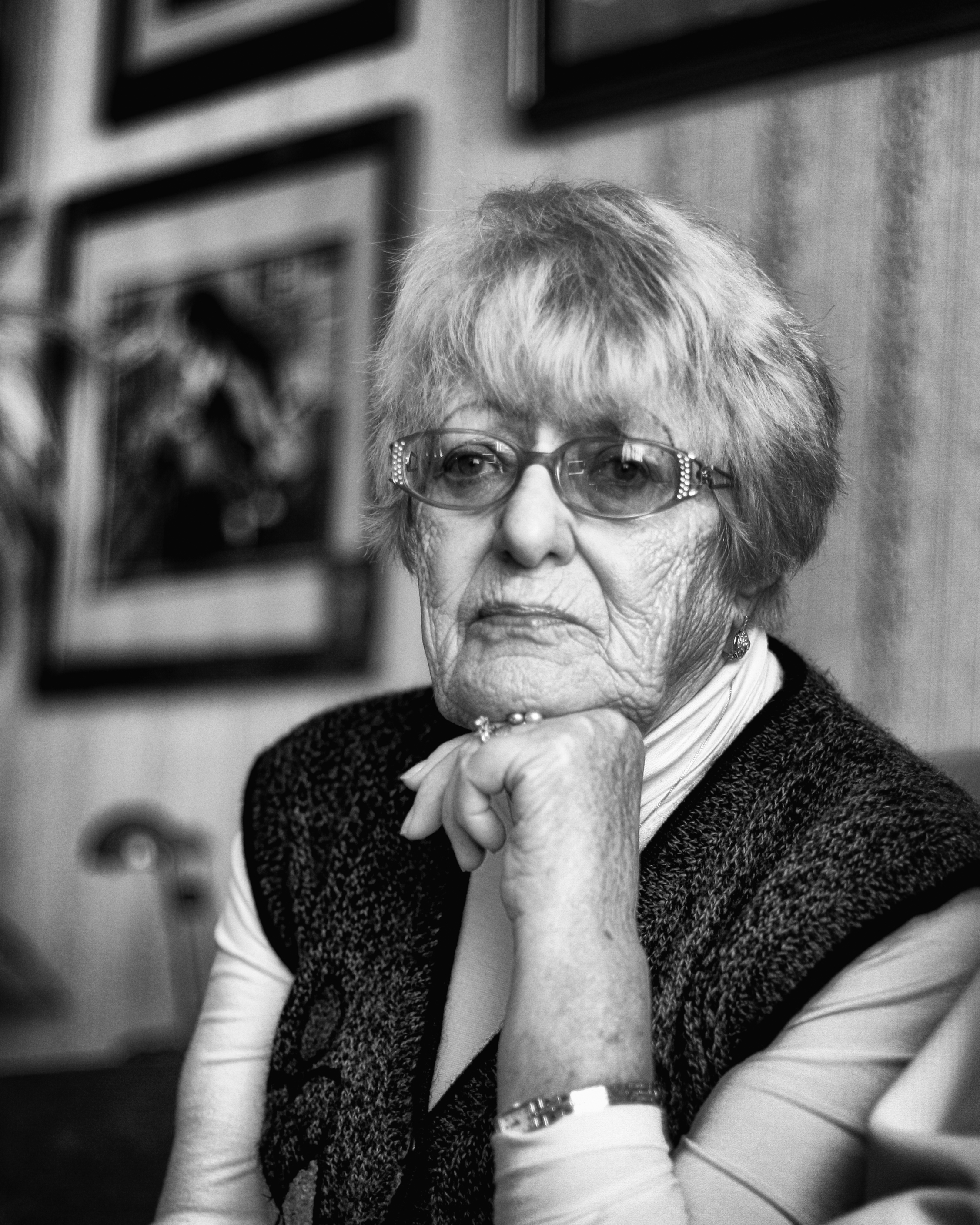My parents were from a shtetl and they were both remarried. They were pogrom survivors, both of them, and lost their spouses to the same band. And so they got together. My father had a 5 year-old daughter and my mother was childless, she had only been together with her first husband for a year. They moved to Kiev, driven by utter hopelessness, I think. Neither could find a job - they had no way to support a family. This was in the 20s. My parents were bakers and they had to hand off most of the bread they baked, but we weren’t starving.
When I was little, I used to go to the market - we lived nearby - and witnessed a lot of very difficult scenes. I saw how children tried to steal some sunflower seeds and were beaten about their hards. I saw a lot of hunger, a lot of despair. It was frightening. It was a difficult time.
We never really celebrated the [Jewish] holidays, but my father would always tell me the history behind each one of them. After the war, when there was a synagogue to go to, they both would go. They’d spend all day there on Yom Kippur and on Passover. They’d buy matzah at the synagogue and bring it home. When there was no synagogue, mom would bake matzah in the oven. But we never gathered for the Jewish holidays as a family, it was too dangerous.
My mother had a brother who was the chief engineer at the Shostkinskaya chemical plant. He visited us in June of ’38 and told my mom “If you don’t hear from me, it means that I’ve been arrested”. The plant director was arrested already. People were arrested left and right in those days.
The night he was arrested, my mother knew. She used to have pitch black hair and then it went all white. She tried to do something, to advocate for him… He was her only brother. There were three sisters and he was the youngest. He lived with her in Kiev when he was studying in the University. She would tell us how he kept his shoes together by tying them with a string - the sole was coming off and there was nothing else to wear. She was told that he was sentenced to 10 years without right of communication. Everyone knew that this meant he was executed already. People with that sentence never made it out alive.
During the war, I was evacuated with mom and dad. My brother got conscripted and he died. We returned from evacuation before the war was over, and in ’44 we were already in Kiev. My cousin’s husband was stationed in Kiev and he managed to occupy two rooms for all of us. Their family lived in one of the rooms, we lived in the other.
In ’47 my husband came to visit his mom in Kiev. He came to my house along with my then boyfriend and we would talk. He was into me and he left Moscow, his wonderful job arranging travel for government officials. He left that all behind and asked for my hand. We waited some one and a half or two years, until his sisters married. We were very poor, we couldn’t afford a ring for him, and my ring was hollowed out, empty inside. It disappeared somewhere. Our wedding was at a friend’s house, she had a large room. There was vodka and bread, potatoes and a salad. We had a lot of fun, we even broke the table. We partied all night.
When, in ’67, we visited relatives in the US, I told my husband’s aunt about our wedding. It was our 20-year anniversary then. The next day we come home and see dozens of cars. We come in, and there’s a cake waiting for us. They threw us a real wedding, gave us real rings. We still wear those rings, we’ve been together for 65 years.
When we wanted to go [visit relatives in 1967], KGB tried to recruit me to spy. That was really hard on me. I met this person, I cried, I told him that I wouldn’t do this, that I don’t have to go anywhere, that all I want is to be left alone. He said, “OK”. Then he called me in again and told me that we would go, that our references were flawless, so good that you could frame them and hang them up on walls. So they let us out.
On our way back, we went through Vienna, we spend 5 days there. While we were there, there was this one man in the hotel that tried to ask us why we’re coming back. You could get your family out through the Red Cross, he said. I threw this guy a scene, I spoke some English. I told him that we’re not about to be servants and carry people’s luggage, that we’re respectable people… Of course we did that because it could have easily been a provocation, and we had to respond the way we were supposed to respond.
When I got home, my own sister told me that she didn’t want to know where we went and how we returned. When I started telling her about the trip, she’d start shaking in fear. We could only talk about it out on the street.
Translation from Russian by Alex Furman

